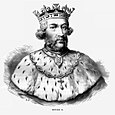Portal:Politics/Selected article/19
The Ordinances of 1311 were a series of regulations imposed upon King Edward II by the peerage and clergy of the Kingdom of England to restrict the power of the king. The twenty-one signatories of the Ordinances are referred to as the Lords Ordainers. English setbacks in the Scottish war, combined with perceived extortionate royal fiscal policies, set the background for the writing of the Ordinances in which the administrative prerogatives of the king were largely appropriated by a baronial council. The Ordinances reflect the Provisions of Oxford and the Provisions of Westminster from the late 1250s, but unlike the Provisions, the Ordinances featured a new concern with fiscal reform, specifically redirecting revenues from the king's household to the exchequer. Just as instrumental to their conception were other issues, particularly discontent with the king's favourite, Piers Gaveston, whom the barons subsequently banished from the realm. Edward II accepted the Ordinances only under coercion, and a long struggle for their repeal ensued that did not end until Thomas of Lancaster – the leader of the Ordainers – was executed in 1322.

